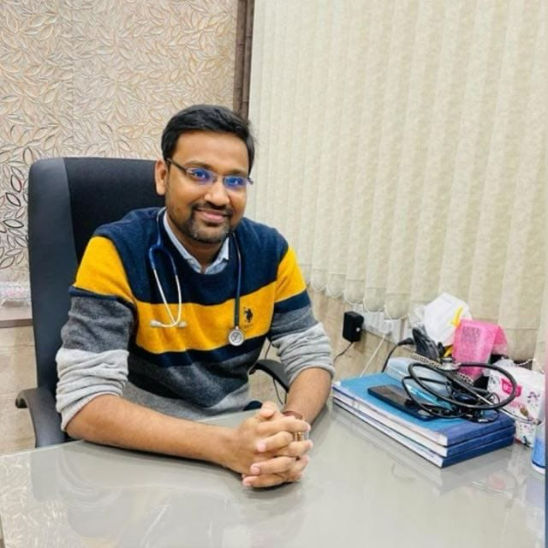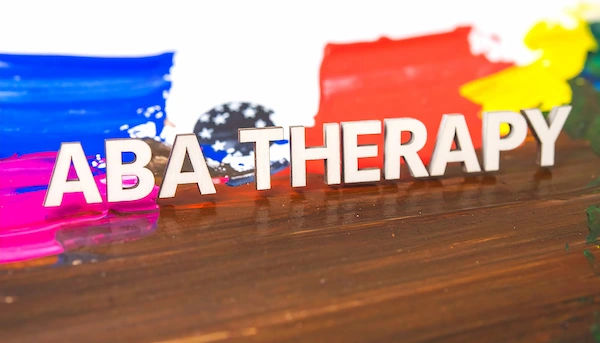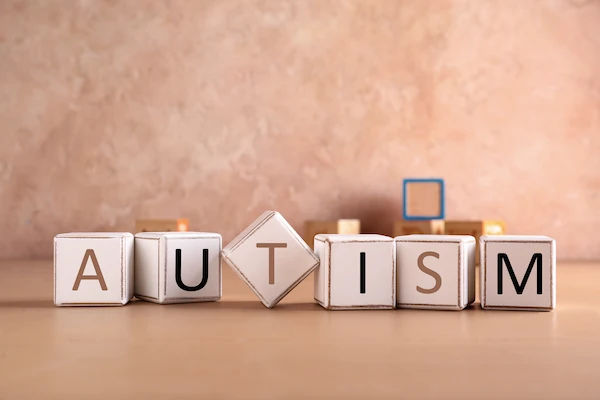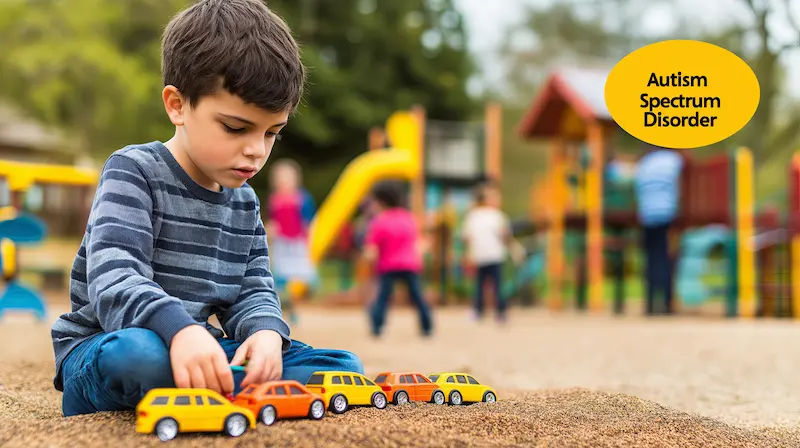Your Autism FAQs Answered: Signs, Support, and Next Steps
Get clear answers to common autism FAQs. Learn about early signs, available support, and next steps to help individuals with autism thrive.


Introduction
Receiving or suspecting an autism diagnosis for your child can bring a flood of questions and emotions. You’re not alone. With so much information available, it’s easy to feel overwhelmed. This guide compiles the most common FAQs on autism, breaking down complex medical jargon into clear, actionable information. We’ll explore the early signs, demystify the diagnosis process, outline support strategies, and point you toward reliable resources. Whether you're a parent, family member, or educator, this article aims to provide a compassionate and comprehensive starting point for understanding autism spectrum disorder and navigating the path ahead with confidence.
What is Autism Spectrum Disorder (ASD)?
Defining the Neurotype
Autism spectrum disorder (ASD) is a complex neurodevelopmental condition that affects how a person communicates, interacts with others, and experiences the world. It is not an illness or a disease; it's a different way of the brain being wired. These differences begin early in childhood and last throughout a person's life, influencing their learning, behaviour, and social skills. Understanding that autism is a neurotype and not a deficit is the first step toward acceptance and effective support.
The "Spectrum" Explained: A Wide Range of Experiences
The term "spectrum" is crucial. It means that no two autistic individuals are exactly alike. The challenges and strengths associated with autism can vary widely from person to person. Some individuals may require significant support in their daily lives, while others may live entirely independently and have exceptional skills in specific areas like math, art, or memory. The spectrum encompasses what was once separately diagnosed as Asperger's syndrome, emphasising that it's all part of one broad, diverse category.
Consult a Specialist for the best advice
Early Signs and Symptoms of Autism
Recognising the early signs of autism in toddlers is key to accessing early intervention, which can make a significant difference in development.
Social Communication and Interaction Red Flags
In Infants and Toddlers (0-3 years)
- Limited or no eye contact.
- Not responding to their name by 12 months.
- Not showing objects to others to share interest (e.g., not pointing at an airplane flying by).
- Lack of pretend play (e.g., not "feeding" a doll).
- Rarely smiling back at caregivers.
In Young Children (3-5 years)
- Difficulty understanding other people’s feelings or talking about their own.
- Preferring to play alone and having difficulty making friends.
- Not engaging in simple interactive games.
- Unusual speech patterns, such as repeating words or phrases (echolalia) or speaking in a flat, robotic tone.
Restricted and Repetitive Patterns of Behaviour
This category includes a range of behaviours often linked to sensory processing issues.
- Repetitive movements: Flapping hands, rocking body, or spinning.
- Insistence on sameness: Extreme distress at small changes, needing to follow rigid routines.
- Intense, highly focused interests: Having deep, all-consuming knowledge of a specific topic like trains, dinosaurs, or maps.
- Sensory sensitivities: Unusual reactions to sounds, textures, tastes, smells, or lights. For example, covering ears in a noisy supermarket or refusing to wear certain fabrics.
Common Questions on Causes and Risk Factors
Is Autism Genetic?
Research strongly indicates that autism has a genetic component. If one child in a family has ASD, the risk of another child having it increases. Certain genetic conditions, like Rett syndrome or Fragile X syndrome, are also associated with a higher risk of ASD. However, it’s usually not one single gene but a complex combination of genetic changes that influences brain development.
Debunking Myths: The Real Science Behind Causes
Despite extensive research, there is no single known cause of autism. Importantly, decades of large-scale studies have conclusively found no link between vaccines and autism. This dangerous myth has been thoroughly debunked. Other factors that may play a role alongside genetics include advanced parental age and certain complications during pregnancy or birth. The current scientific consensus is that autism develops from a combination of genetic and environmental influences that affect early brain development.
The Autism Diagnosis Process
Who Can Diagnose Autism?
A formal diagnosis should be made by a team of specialists, which may include a developmental pediatrician, a child psychologist or psychiatrist, a neurologist, and a speech-language pathologist. These professionals have specific training in assessing autism spectrum disorder. If you suspect your child may be autistic, your first step is to consult your pediatrician, who can refer you to these specialists. If you need guidance on starting this process, consulting a developmental pediatrician online with Apollo24|7 can be a convenient first step to discuss your concerns.
What to Expect During an Evaluation
There is no single medical test for autism, like a blood test. Diagnosis is based on observed behaviour and development. The evaluation typically involves:
- Parent Interview: Detailed questions about your child’s developmental history, behaviour, and skills.
- Direct Observation: The specialist will play and interact with your child using standardised tools like the ADOS-2 (Autism Diagnostic Observation Schedule).
- Hearing and Vision Tests: To rule out other issues that could explain the symptoms.
- The goal is to get a comprehensive picture of your child's strengths and challenges across different settings.
Support, Therapies, and Interventions
Early Intervention Services
For young children, early intervention services are critical. These government-funded programs provide therapies designed to help children develop skills in areas where they face challenges. The sooner a child starts, the better the outcomes tend to be.
Types of Therapeutic Approaches
There is no "cure" for autism, but a multitude of therapies can greatly improve skills and quality of life. Common autism therapy options for children include:
- Applied Behaviour Analysis (ABA): A widely used therapy that uses reinforcement techniques to teach new skills and reduce harmful behaviours.
- Speech-Language Therapy: Helps improve communication skills, both verbal and non-verbal.
- Occupational Therapy (OT): Assists with sensory integration and developing daily living skills like dressing, eating, and writing.
- Social Skills Training: Helps children learn how to interact and build relationships with peers.
Creating a Supportive Home Environment
Structure and predictability are comforting. Using visual schedules, maintaining consistent routines, and creating a calm, organised space can help reduce anxiety. Most importantly, celebrate your child’s unique strengths and interests—they are a core part of who they are.
Navigating Life and Planning for the Future
Educational Support and IEPs
In school, an autistic child may be eligible for an Individualised Education Program (IEP). This is a legal document that outlines specific educational goals, support services (e.g., a classroom aide, speech therapy), and accommodations (e.g., extra time on tests, a quiet space to work) tailored to your child's unique needs.
Transitioning to Adulthood
Planning for adulthood should begin in the teen years. This includes focusing on vocational skills, independent living skills, and financial planning. Many communities have programs to support autistic adults with employment, housing, and social connections, allowing them to lead fulfilling and independent lives.
Conclusion
Understanding autism is a journey of replacing fear with knowledge and confusion with clarity. While an autism spectrum disorder diagnosis can feel daunting, it is ultimately the key that unlocks access to support, therapies, and a community that understands. Remember, autism is just one part of a person's identity. By focusing on strengths, embracing neurodiversity, and advocating for appropriate resources, you can help an autistic individual not just cope, but truly thrive. If you have concerns about your child's development, the most important step is to seek guidance. Book a physical visit to a developmental specialist with Apollo24|7 to get a comprehensive evaluation and start building a supportive path forward.
Consult a Specialist for the best advice
Consult a Specialist for the best advice

Dr. Guruprasad N
Paediatrician
7 Years • MBBS, MD Peadiatrics, DNB pediatrics
Bangalore
Apollo Clinic Bellandur, Bangalore

Dr. Saheli Dasgupta
Paediatrician
11 Years • MBBS, MD (Paediatrics), Indian Diploma of Paediatric Critical Care Medicine
Kolkata
Sristi Polyclinic, Kolkata

Dr Sharvari Kulkarni
Paediatrician
5 Years • MBBS, MD PEDIATRICS
Pune
Apollo Clinic, Viman Nagar, Pune

Dr Ankit Goel
Paediatrician
10 Years • MBBS, MD Paediatrics, IPPN, MIAP
Kolkata
SANJEEWAN CLINIC, Kolkata
Dr. J N V. Bhuvaneswararao
Paediatrician
24 Years • MBBS,Diploma in Child Health
Vijayawada
SRI SRINIVASA CHILDRENS HOSPITAL, Vijayawada
Consult a Specialist for the best advice

Dr. Guruprasad N
Paediatrician
7 Years • MBBS, MD Peadiatrics, DNB pediatrics
Bangalore
Apollo Clinic Bellandur, Bangalore

Dr. Saheli Dasgupta
Paediatrician
11 Years • MBBS, MD (Paediatrics), Indian Diploma of Paediatric Critical Care Medicine
Kolkata
Sristi Polyclinic, Kolkata

Dr Sharvari Kulkarni
Paediatrician
5 Years • MBBS, MD PEDIATRICS
Pune
Apollo Clinic, Viman Nagar, Pune

Dr Ankit Goel
Paediatrician
10 Years • MBBS, MD Paediatrics, IPPN, MIAP
Kolkata
SANJEEWAN CLINIC, Kolkata
Dr. J N V. Bhuvaneswararao
Paediatrician
24 Years • MBBS,Diploma in Child Health
Vijayawada
SRI SRINIVASA CHILDRENS HOSPITAL, Vijayawada
More articles from Autism
Frequently Asked Questions
What is the main difference between autism and Asperger's?
Asperger's syndrome was previously a separate diagnosis for individuals with autistic traits who had no significant delay in language or cognitive development. It is now included under the broader umbrella diagnosis of autism spectrum disorder (ASD). Many who were diagnosed with Asperger's now identify as being on the 'higher-functioning' end of the spectrum.
Can autism be detected before birth?
Currently, there is no standard prenatal test to detect autism. Since diagnosis is based on observing behaviour and developmental milestones, it is typically identified in early childhood, often between 2 and 3 years of age.
Do all autistic people have an intellectual disability?
No. While some autistic individuals have intellectual disabilities, many others have average or above-average intelligence. The cognitive abilities of people on the autism spectrum vary greatly, and some may have exceptional skills in specific areas.
What is stimming and is it harmful?
Stimming (self-stimulatory behaviour) refers to repetitive movements or sounds like hand-flapping, rocking, or humming. It is often a way to self-soothe, manage overwhelming emotions, or express joy. It is not inherently harmful unless it leads to self-injury. Instead of trying to stop it, the focus should be on ensuring it's safe and understanding the need behind it.
How can I explain autism to a sibling or family member?
Use simple, age-appropriate language. For a young child, you might say, 'Your brother's brain works in a special way. Some things that are easy for us are hard for him, and he might learn and play differently. That's why we help him and love him for all the amazing things he can do.'


